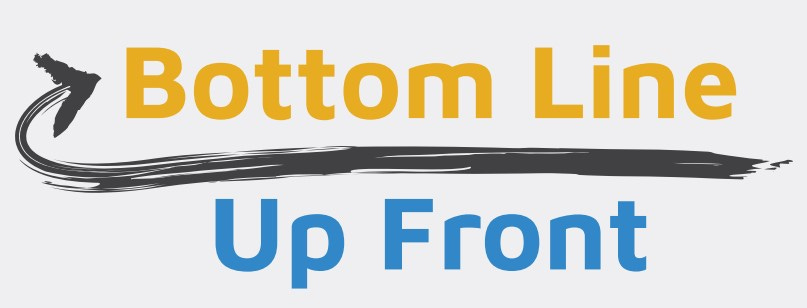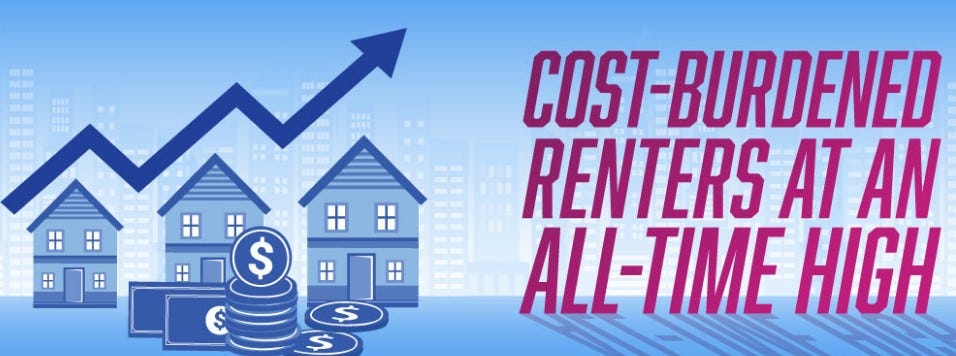Housing Solutions, Part I
Pathways to Creating Racially Equitable Neighborhoods
BLUF: Bottom Line Up Front
Housing Crisis and Black Disparities: America faces a severe housing crisis, with a shortage of 4.5 million units annually. Black Americans experience disproportionately low homeownership rates (45% vs. 75% for Whites) and high housing cost burdens, a legacy of redlining, segregation, and lending discrimination.
Broad Public Support for Housing Solutions: Majorities of Americans favor innovative housing policies, such as converting offices to housing or adding apartments near transit hubs, as ways to increase affordability, reduce homelessness, and address racial segregation.
Three proposals to consider that would significantly enhance housing and wealth for African Americans:
Targeted Down Payment and Revitalization Grants: A proposed federal program would provide up to $25,000 in down payment grants and $25,000 in housing revitalization grants to low- and moderate-income Black households, helping first-time buyers and homeowners build wealth and stabilize communities.
Tax Credits for Wealthier Black Households: A refundable, advanceable tax credit of up to $15,000 for first-time Black homebuyers earning above 200% of the local median income would support wealth-building through homeownership.
Redress for Predatory Lending: Principal reduction or cancellation for Black families impacted by the 2008 housing crisis would provide overdue redress for wealth lost due to predatory subprime lending.
Is There a Path Forward in our Current Political Climate? While race-exclusive policies face hurdles under current political realities, income-based approaches could achieve similar positive outcomes, significantly benefiting African American households.
Whether you own or rent, housing matters.
When our nation faces its worst housing crisis in memory, housing matters even more. How bad is the crisis?
Some estimates show that the country has fallen short of building all types of housing by nearly 400,000 units every year for the past decade and that our housing shortage is at least 4.5 million homes annually.[1]
We’ve seen in previous posts how Black homeownership rates compare disappointingly to White rates (about 75% to 45%). Whether they rent or own, African Americans are also disproportionately housing cost-burdened—spending at least 30% of their income on housing costs—or severely cost-burdened—paying at least 50%.
According to the U.S. Census, 56% of Black renters are housing cost-burdened[2] and around 30% of Black homeowners are.[3]
For the first time in decades, the lack of housing (and of affordable housing) became a presidential campaign issue. Sufficient housing is lacking in every region of the country.
A recent national survey from the Pew Trusts shows that large majorities of Americans favor allowing:
Apartments near train or bus stations or major job centers
More affordable housing or dorms on church or college land
Apartments near offices, stores, or restaurants
Conversion of basements or attics into apartments
Adding apartments over garages or in backyards
Offices, hotels, and similar buildings to be converted to housing
Significant majorities believed pursuing such policies would make housing more affordable, help business owners have more employees and customers nearby, reduce homelessness, and reduce racial segregation.[4]
For African Americans, low ownership rates and high cost-burden percentages are the legacies of racist housing policy (think redlining), intentional residential segregation (think creation and prolongation of the Black ghetto), and continuing lending discrimination.
We must be ready to act boldly to redress these historic wrongs. Housing solutions for African Americans should focus on reducing housing cost burdens and increasing opportunities for home ownership, thereby increasing Black household wealth.
Proposals To Consider for Redress
I will start with policies targeted exclusively to African Americans.
1. Create a new federal program to provide down payment grants of up to $25,000 (without requiring repayment) and housing revitalization grants of up to $25,000 for Black households that make low-to-moderate incomes (200 percent, or under, of the local area median income—AMI-—which varies by locality), helping first-time homebuyers purchase homes, and current Black homeowners refurbish their homes.[5] I'd propose $10-20 billion per year for ten consecutive years.
The core of this idea emerged from the 2020 Biden for President campaign and was proposed in a 2021 Congressional bill that failed to pass, although both versions were racially neutral.
Biden also placed a version of this (again, racially neutral) in his 2024 fiscal year budget proposal for $100 billion, but it never passed; it was titled “The Downpayment Toward Equity Act.”[6] Kamala Harris included a similar version to Biden’s for first-time home buyers in her housing plan in the run-up to the 2024 election.[7]
Yet, progress on this doesn’t need to wait on the feds. For example, Washington state announced in 2023 that it would “provide up to $50,000 in down payment and closing cost assistance to as many as 2,500 non-white households every year.”[8] (emphasis added) You can read more about Washington State’s Covenant Homeownership Program at https://www.wshfc.org/covenant/.
As other states await federal action, they should introduce programs with a similar focus.
2. For those Black households above 200 percent of the area median income, access to the same federal funding source would enable them to buy their first homes and build wealth through a new refundable, advanceable tax credit of up to $15,000. This would be an extension of #1 and would offset homebuying costs for first-time Black buyers, with recipients receiving the credit at the time of purchase.[9]
These households with greater means would benefit significantly as it would enhance their ability to put a significant down payment on the homes they purchase.
3. Institute principal reduction (or cancellation) for Black families foreclosed on due to predatory lending or still underwater due to the bursting of the 2008 housing bubble. Too many Black families never recovered their loss of wealth and home equity from mortgage lenders’ explicit targeting of Black homebuyers for subprime mortgages.[10]
This is a more radical idea, one that provides redress for current or former Black homeowners disproportionately affected by the predatory banking and home lending fiasco from the early 2000s.
Why?
During this time, “mortgage lenders explicitly targeted Black and Brown home buyers for subprime mortgages, even when they qualified for conventional loan products. [Too many] Black and Brown families have not recovered, in terms of wealth or home equity, at the rate white families have. … Knowing these communities were specifically targeted with high-cost toxic loan products, the balance on outstanding mortgages for homeowners who,10 years later, owe more than their homes are currently worth should be canceled, or, at a minimum, their principal should be reduced to align with the current value of their homes.”[11] (emphasis added)
Given our current anti-affirmative action climate, none of these proposals would likely gain traction under a Trump administration or Republican-led Congress. To achieve passage for any of the three proposals might require them to be based on income requirements rather than race, meaning any household across the racial spectrum could qualify.
Given the disproportionate number of African Americans who come from lower-income households, the impact would be very positive overall for the African American community.
As I will do in many of my newsletter posts in 2025, I paraphrase Bryan Stevenson when I conclude with this question: Do these remedies, in part, begin to match the extent of the injuries suffered by African Americans from redlining, residential segregation, lending discrimination and exclusion?Footnotes
[1] “The U.S. is now short 4.5 million homes as the housing deficit grows,” Zillow Press Release, June 18, 2024, https://zillow.mediaroom.com/2024-06-18-The-U-S-is-now-short-4-5-million-homes-as-the-housing-deficit-grows.
[2] Nearly Half of Renter Households Are Cost-Burdened, Proportions Differ by Race, U.S. Census Bureau, September 12, 2024, https://www.census.gov/newsroom/press-releases/2024/renter-households-cost-burdened-race.html.
[3] More Americans Own Their Homes, but Black-White Homeownership Rate Gap is Biggest in a Decade, NAR Report Finds, https://www.nar.realtor/newsroom/more-americans-own-their-homes-but-black-white-homeownership-rate-gap-is-biggest-in-a-decade-nar.
[4] Alex Horowitz and Tushar Kansal, “Survey Finds Large Majorities Favor Policies to Enable More Housing,” Pew Trusts, November 30, 2023, https://www.pewtrusts.org/en/research-and-analysis/articles/2023/11/30/survey-finds-large-majorities-favor-policies-to-enable-more-housing.
[5] “The Biden Plan for Investing in our Communities through Housing,” https://joebiden.com/housing/#.
[6] “What is The $25,000 Downpayment Toward Equity Act? [Explained],” homebuyer.com, September 22, 2024, https://homebuyer.com/learn/25000-first-time-home-buyer-downpayment-grant#:
[7] “Biden-Harris Administration Announces $5.5 Billion in Grants for Affordable Housing, Community Development, and Homeless Assistance to Drive Economic Growth,” Housing and Urban Development press release, May 7, 2024, https://www.hud.gov/press/press_releases_media_advisories/hud_no_24_103.
[8] Leah Rothstein, “Washington State adopts a race-based remedy for past housing discrimination,” Just Action, September 20, 2023,
.
[9] A National Homes Guarantee: Briefing Book,” People’s Action, September 5, 2019, https://homesguarantee.com/wp-content/uploads/Homes-Guarantee-_-Briefing-Book.pdf.
[10] Ibid, p. 14.
[11] Ibid.




